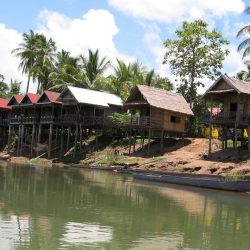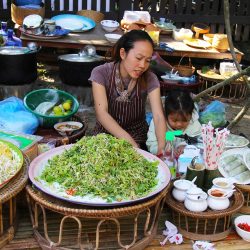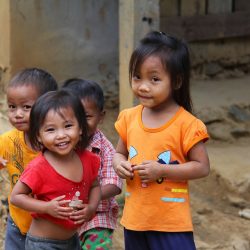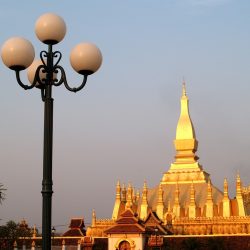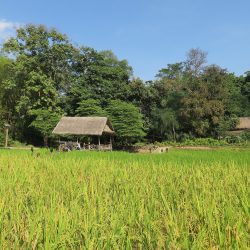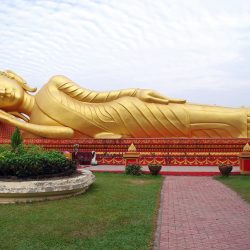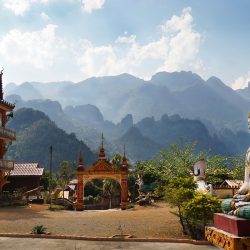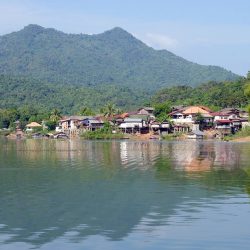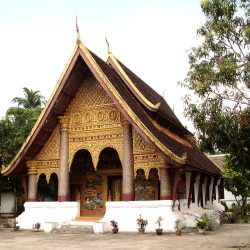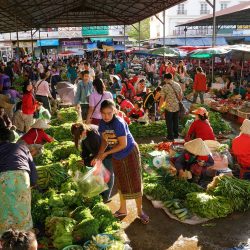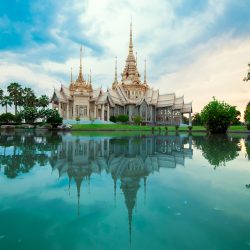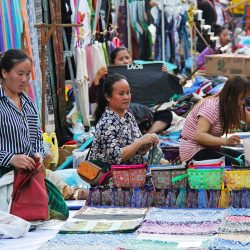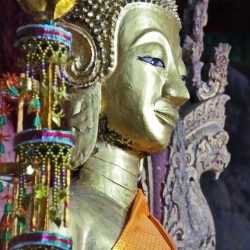Discover Luang Prabang and its traditional BACI dances (B,L,D)
Breakfast at the hotel.
City tour by tuk tuk (4 people per tuk tuk)
You will then begin your visit to this city on the left bank of the Mekong. What was once a religious capital still boasts over a hundred temples, some of the finest in Laos. You begin with a visit to the Royal Palace (closed every Tuesday), now transformed into the National Museum. You will also discover Vat Xieng Thong, the Temple of the Royal City. This is a vast complex of sacred buildings and one of the jewels of Lao art: quite simply the most beautiful temple in the city!
We continue our visit with Vat May, built at the end of the 18th century. It takes the form of a sanctuary with a five-sided roof topped by three parasols. We will then take you to Vat Visoun. Here we will discover the city's oldest temple, instantly recognisable thanks to its wooden baluster windows, inspired by the Khmer temple of Vat Phu. Finally, you will visit Vat Aham, located right next to Vat Visoun. It can be recognised by the two majestic banyan trees that frame it.
Lunch in a local restaurant during the visit.
In the late afternoon, a performance of BACI dances, traditional Laotian dances.
Celebrated on the occasion of an event rich in emotion, the Lao baci is a collective ceremony during which the spirits are called upon to unite in order to catalyse: happiness, luck and prosperity for the newborn, the newlyweds, the traveller, etc. In Laos, people see themselves as animated by several souls. If one of them runs away or is snatched up by a wandering, evil spirit, the person falls ill. People also attribute 'souls' to plants, objects and animals, notably the tiger and the elephant. They imagined relationships between object-souls, human souls and elephant souls!
The baci takes place around an altar of flowers from which cotton threads radiate, symbolising links with the spiritual world. The cotton threads, links with the world of souls, are therefore tied to the wrists of the caravaneers and around the ears of the elephant to wish them luck and prosperity during the new year of the Buddhist calendar.
Dinner with local people. Night at the hotel.


